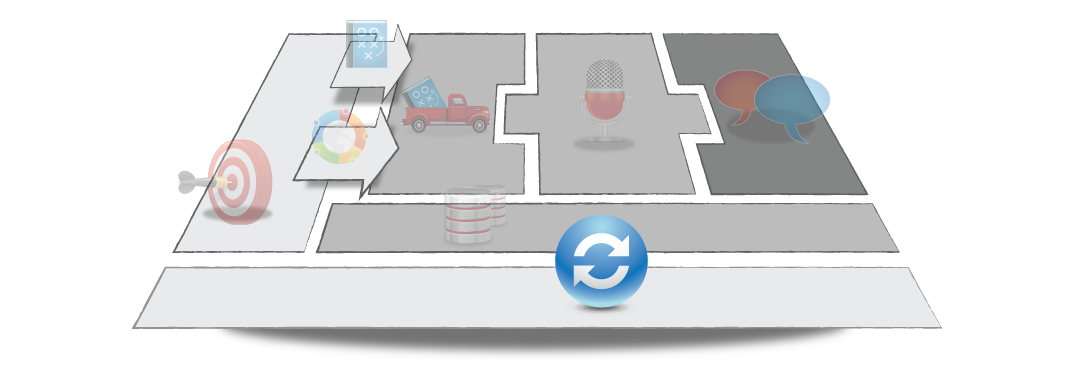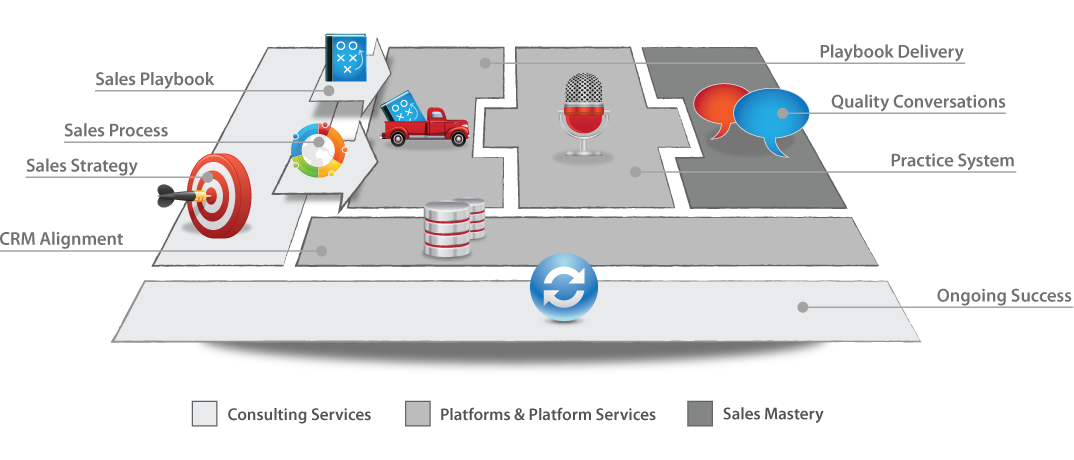
To predictably scale your sales effort, your reps not only need to know what to do and when to do it but also what to say and how to say it. Consistently having meaningful conversations with prospects is hard. Prospects tell Forrester Research that 9 out of 10 conversations with sales reps are a waste of time. This is a big problem. It’s hard to sell when your prospects are counting the minutes until you leave them alone. Aberdeen also found that the number one priority for best-in-class sales organizations is to invest in better selling conversations to address this serious shortcoming.
From long careers in sales and sales management and from working with top software and media technology companies over the last 5 years, Sales Scale Partners has developed a 7-pronged approach combining consulting and technology to operationalize consistent, story-based, high-value prospect conversations.
MORE >
Refining your sales strategy, sales process and sales playbook are the core consulting pieces of our engagements. Delivering the ‘plays’—the right questions, stories and tools—to the repswhen they need them and making it easy for your reps to practice your selling stories both include technology we think is critical to consistently great prospect conversations.
Ensuring your sales system has the properly configured dashboards, reports, libraries and templates to support world-class prospect conversations and periodically refreshing your content and configurations for ongoing success are also included in our service offering.
Nailing and coordinating these seven components will drive compelling conversations that your prospects that they will value.
When your sales force knows what to say and how to say it, higher win rates, faster and bigger deals and shorter rep ramps will result.
1. Prospect Conversations:
To predictably scale your sales effort, you need to build a sales team that understands your prospect’s issues and can ask the right questions, tell the right stories and credibly discuss the ideas, insights and solutions that will help them solve their problems and build better businesses.
MORE >
Your sales team needs to be able to quickly digest and deliver new stories as your industry, company, competition and solutions change over time. A key ingredient to getting your unfair share of business and one of our most important deliverables is consistently great prospect conversations. To get reps to this point takes lots of elbow grease.
The 7 pieces of our Success Framework operationalize great sales conversations:
- Sales strategy
- Sales process
- Sales playbook
- Sales playbook delivery
- Practice system
- CRM Alignment
- Ongoing Success
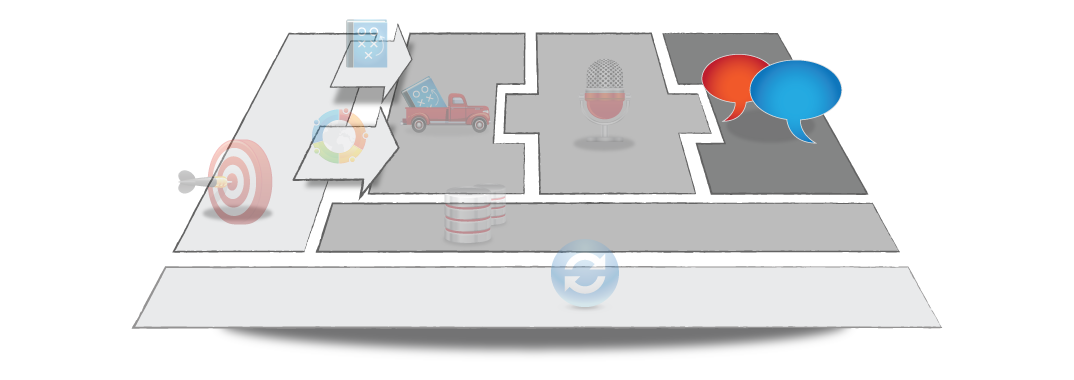
2. Sales Strategy:
Aligning sales with the business strategy and pushing the entire organization to be ‘sales ready’ are two powerful– and often overlooked–steps we help companies take. Identifying the desirable and winnable target markets, building a realistic sales model and picking the right metrics to inspect support a focused sales management approach and a tight sales process and playbook.
MORE >
Typical components of the sales strategy engagement:
- Business / sales strategy alignment
- Organizational “Sales Readiness” assessment
- Sales team ‘Sales Readiness” assessment
- Win / loss / stall analysis
- Right target markets
- Right sales model
- Right sales metrics
- Right rep profile
- Right compensation
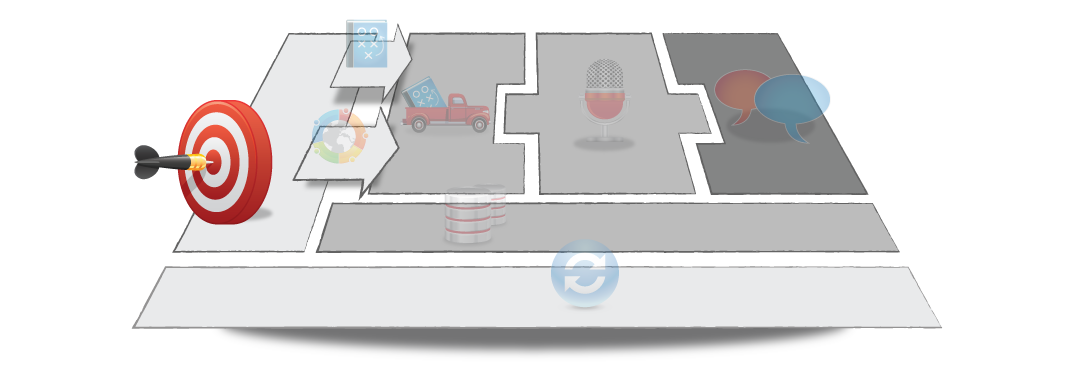
3. Sales Process:
Sales reps systematically knowing what to do and when to do it is important to scaling your sales team.
Most companies we work have a sales process in place and many have worked with sales training companies like Solution Selling, Miller Heiman and Target Account Selling to flesh out their deal strategy and execution activities. That is great and we can work with any sales methodology you have adopted.
MORE >
We do often find ourselves tuning the sales process to highlight a client’s differentiation or to bring more qualifying activities forward so companies can ‘lose early’ vs. wasting time in stalled or losing opportunities. If a full sales process training is needed, we have had success working with Value Selling and integrating it into the overall engagement. Whatever your situation, a strong sales process underlying the sales playbook is important and we will work with you to get it right.
Typical components of a good sales process:
- Highlights your differentiation
- Focuses the sales team on winning desirable prospects
- Integrates with your prospect facing evaluation process and plan
- Identifies key activities by sales stage
- Identifies key sales tools by sales stage
- Identifies the go / no go gates by sales stage
- Integrates with key success metrics by sales stage
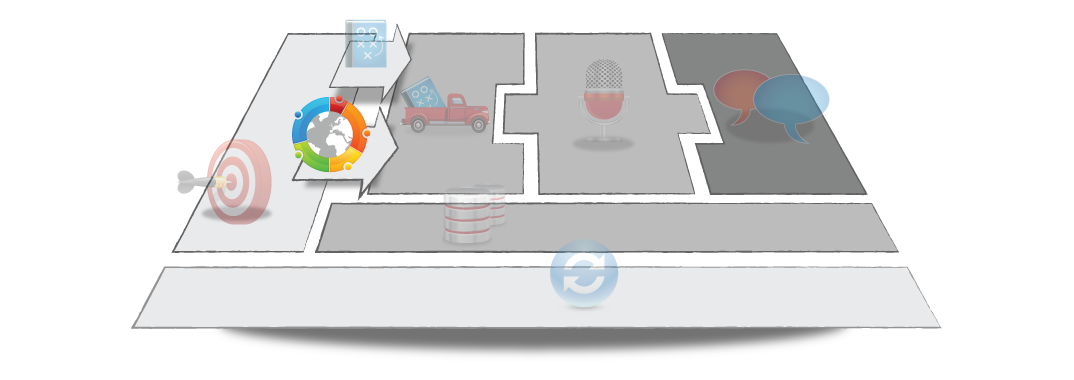
4. Sales Playbook:
Selling to businesses is not simple. When your company has a strong value proposition, it often seems to entrepreneurs and executives without sales backgrounds that it should be easy to sell your offering. Unfortunately, it isn’t.
MORE >
There is a lot of noise in the marketplace and prospects are busy. Sales reps must show up to every customer interaction ultra-prepared with knowledge of the prospects situation, tight questions and relevant stories. Management can’t afford to abdicate sales to the sales reps, no matter how easy they may think the sale should be or how big the new sales reps W2s were at their previous companies. In our experience, successful management teams take responsibility for making sales reps successful and break a sweat delivering the sales team the tools it needs.
To scale a sales team, it is important to document your “tribal knowledge” and create sales playbooks for both your sales managers and sales reps. This selling knowledge is best captured in questions, tools and selling stories. In our ‘anatomy of a sales playbook’ framework you can see examples of the tools and stories that have helped make our clients successful.
Not all sales teams will need every one of these tools, but there are a surprisingly large amount of things a sales team needs to consistently sell well.
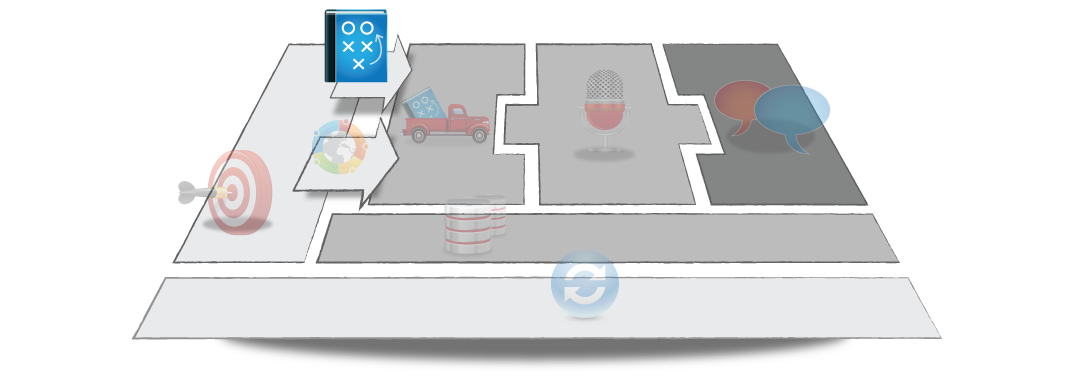
5. Sales Playbook “JIT” Delivery Platform:
Creating a good sales playbook is an important step to scaling your sales team. But if the sales reps aren’t using the ‘plays’, all is for naught. Reps are like rivers – if they hit a rock, they flow around it. If that rock is a sales tool they can’t find, they will either do without it or mock up one themselves, often mangling the brand and the English language along the way.
MORE >
Delivering the sales tool or story to the rep when they need it turns out to be a key success factor for sales playbook usage.
At a minimum, this means a fully indexed, tagged and searchable sales playbook library in your CRM system. A better way, though, to get the full benefit from your sales playbook is to integrate the sales tools and actions into the opportunity itself and deliver the needed information to the rep when they need it opportunity by opportunity.
The best way we’ve found to deliver the tools and stories ‘just in time’ (JIT) is the Qvidian sales playbook platform.
Our engagements include configuring the Qvidian system to help sales organizations take full advantage of the sales playbook content with JIT delivery.
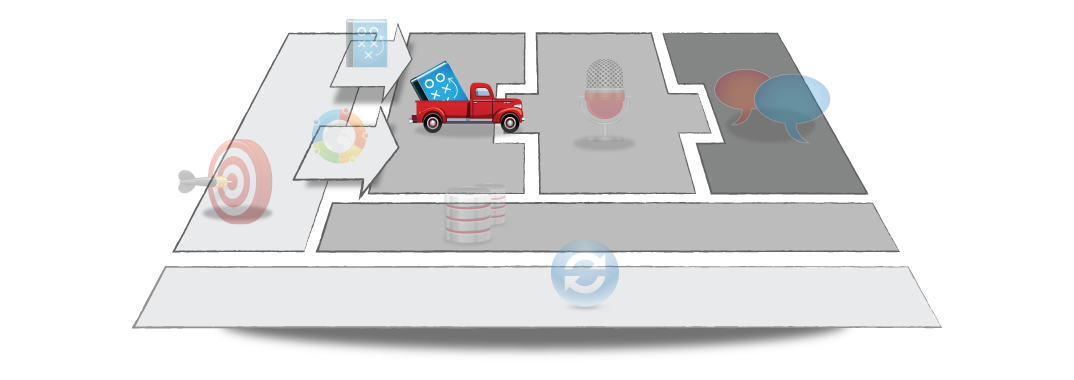
6. Ongoing Success by Practicing Selling Stories:
Practice works. The 2012 NFL Superbowl MVP Eli Manning only played 10 hours in 2012. But he spent the other 2000 hours practicing – at training camp, in the gym, during film sessions and at practices. Sales may not be quite as bruising as football, but is the typical sales rep more expert than Eli Manning at their craft?
MORE >
If Eli practices 200 hours for every hour he needs to play, should the average sales rep be practicing less than 5 minutes for every hour they are in front of a prospect? That’s 2000+ times less practice! Deliberate practice is the only way to systematically develop expertise. Athletes do it. Musicians do it. Actors do it. Writers do it. Doctors do it. Pilots do it. Trial lawyers do it. Reps need to do it, too.
Role playing the key questions, objection handling responses and selling stories is the best way for sales reps to practice.
In addition to helping craft and document these sales tools, our engagements typically include story transfer sessions where we capture the best practice selling stories and then role play them with the sales team.
We also help implement and configure the SharperAx Sales Practice System, which reps use with their webcams to practice the best practice selling stories. Our clients use this system to continue to collect and practice their selling stories as their competitive environment and products change over time.
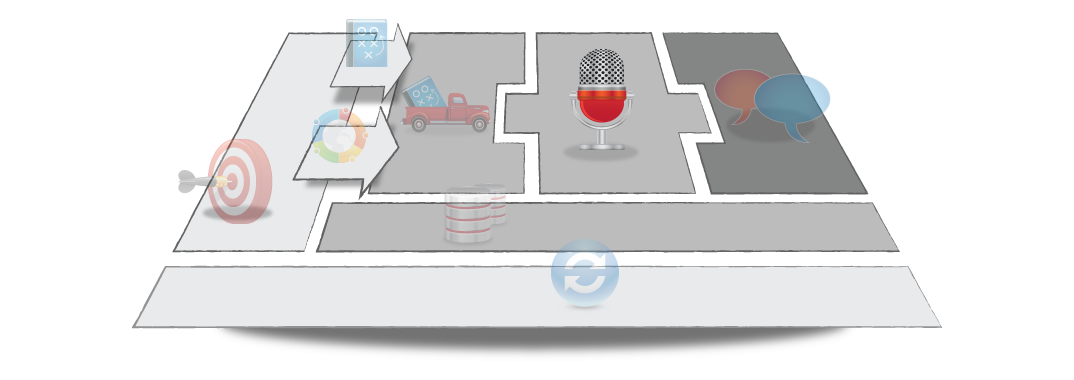
7. CRM Alignment:
It took 20+ years, but most sales reps we work with these days are using their CRM systems.
Unfortunately, many CRM systems have dirty, incomplete data and lots of vestigial fields and reports, which make them hard for sales reps to use.
MORE >
These systems also haven’t been configured to answer key CEO and VP Sales rep questions like:
- How big is my prospect universe, who are the companies and contacts in that universe and what are their phone numbers and emails?
- Why am I winning? Why am I losing?
- Do we have enough deals at each stage of the pipeline to make the number?
- Which markets have the highest win rates, biggest deals and shortest sales cycles?
- Is my team working the right deals?
- Are my reps doing the 2 most important things I want them to be doing during their sales cycles?
Our engagements typically involve some CRM configuration, data appending and system clean-up services to make sure the important questions can be answered and that the system is aligned with the strategy and playbooks we are delivering.
This can include deliverables like creating prospect universes, putting in the win-loss scaffolding and history, capturing the lead-to-close pipeline goals by stage, cleaning up the target market information, implementing a deal level attractive / winnability scoring and making sure the key rep activities needed to win are collected and easily available for inspection.
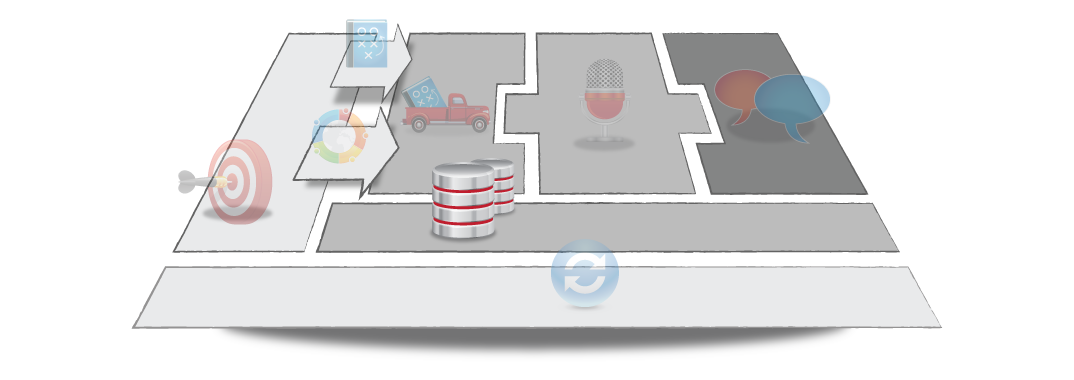
8. Ongoing Success:
Sales playbooks are like prospect databases – they start to become obsolete the minute you implement them. The sales environment changes quickly as products evolve and competitors come and go. We help our clients stay on top of the changes by working with them to keep the strategies, processes, playbooks, platforms and training current.
MORE >
Ongoing Success services include deliverables like:
- New rep training
- Refreshing selling stories
- Driving weekly story sessions
- Updating playbook content
- Updating CRM and the sales playbook platform configurations
- Coaching at the sales kickoff
- Interviewing candidates
- Quarterly sales effectiveness audits
- Working with the client service team on to better tell value-based stories to customers
